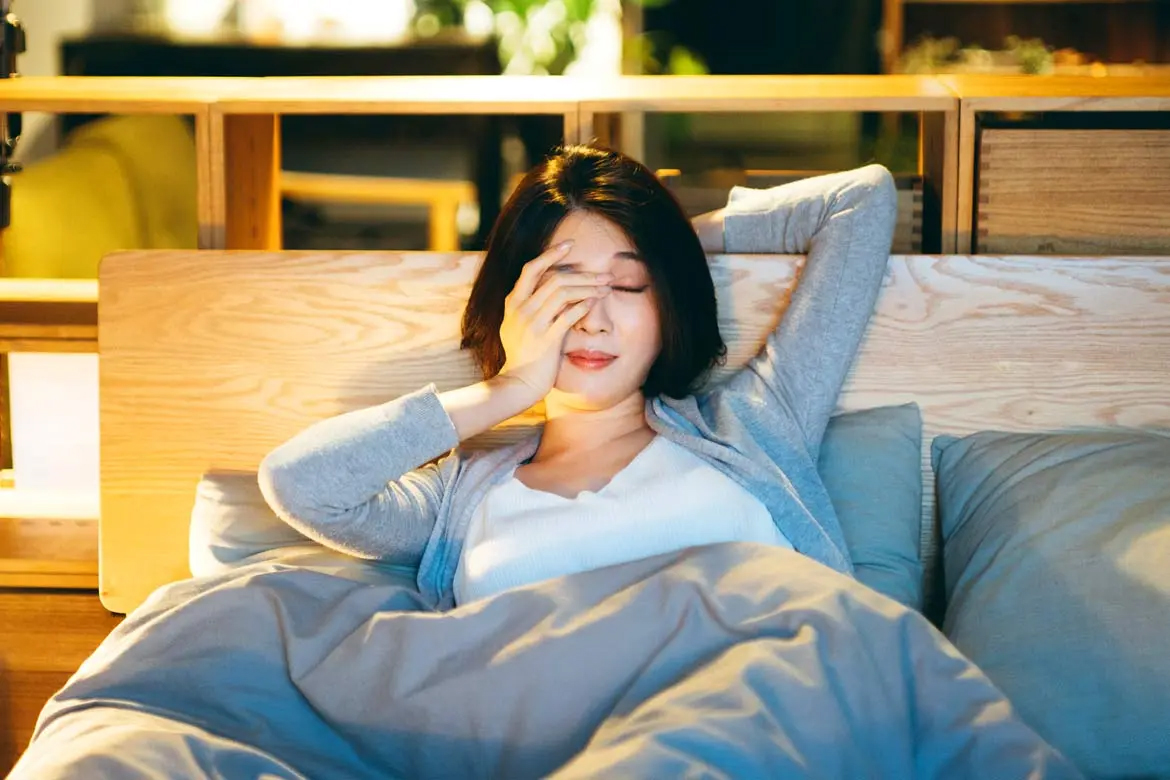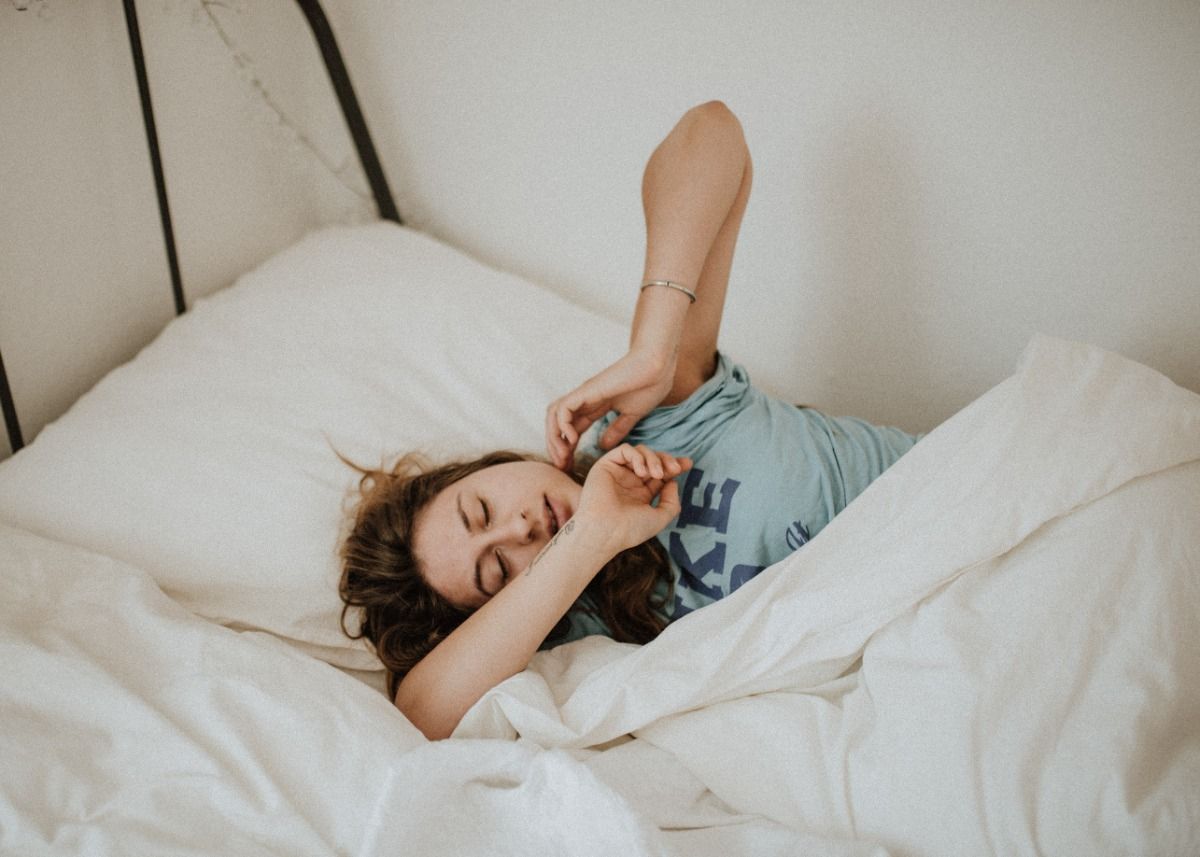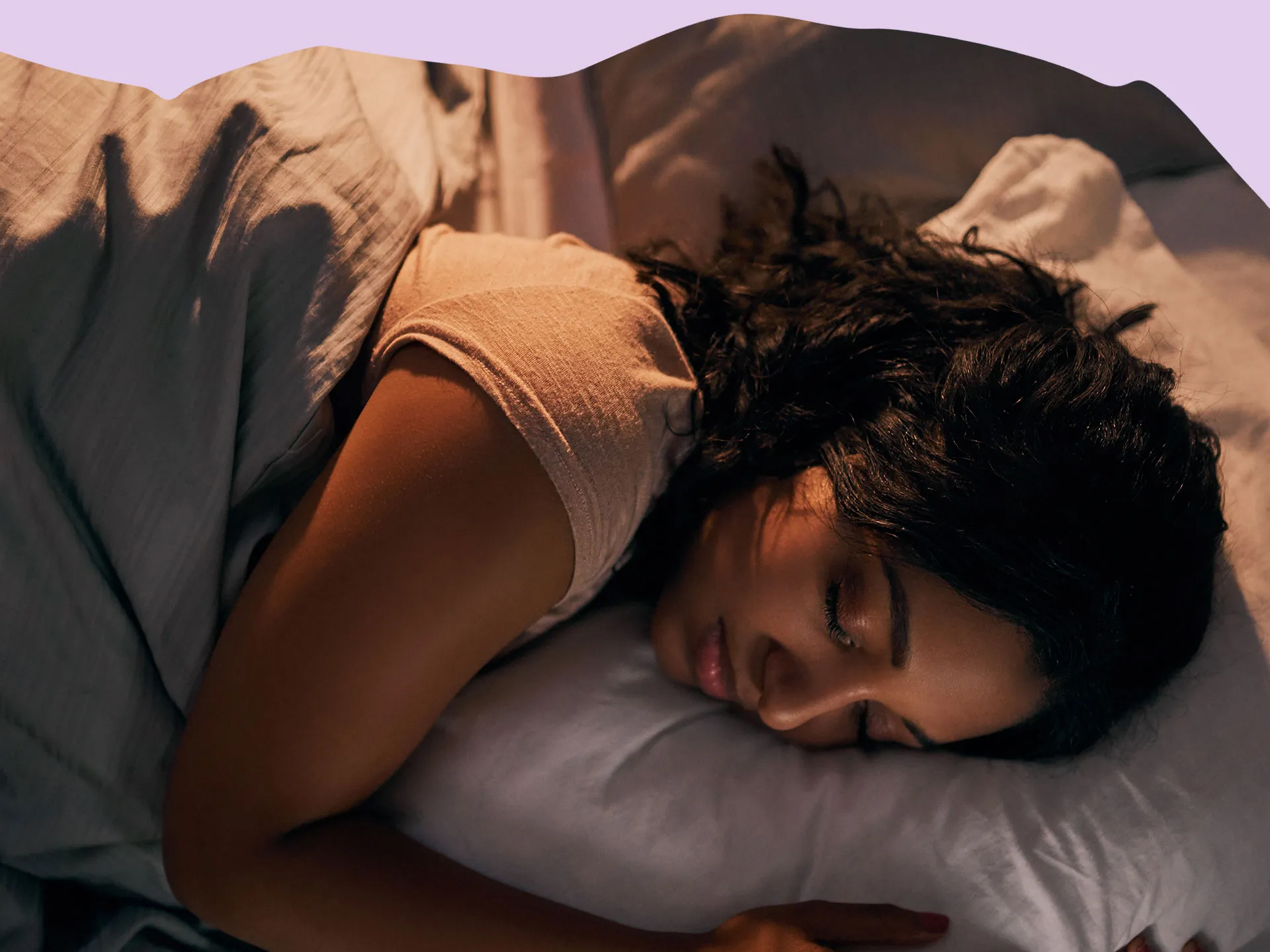Following the sleep rule can help you fall asleep faster and enjoy better quality sleep for a healthier body and mind.
The Importance of Sleep
Most adults need between 7 and 8 hours of quality sleep each night. When our bodies don’t get enough sleep, we’re at greater risk of chronic health problems including high blood pressure, diabetes, stroke, obesity, heart disease, and depression. Sleep deprivation means our mental abilities aren’t as good as they could be with shortened attention span, slow reaction times, poor memory, increasing errors, and reduced concentration.
If you aren’t getting a good night’s sleep, the following sleep rule may help you turn it around.
The Sleep Rule: 10-3-2-1-0
10 hours before bed: No more caffeine.
3 hours before bed: No more food or alcohol.
2 hours before bed: No more work.
1 hour before bed: No more screen time (shut off all phones, TVs and computers).
0: The number of times you hit snooze in the morning.
10 hours before bed: No caffeine
Most coffee drinkers experience the effects of drinking caffeinated drinks soon before bed. To ensure your sleep isn’t impacted, opt for different drinks after your morning coffee. Caffeine levels peak one hour after consuming coffee and stay at this level for five hours. By the sixth hour, around half of the caffeine is still in the body. Finally, only after 10 hours will the caffeine no longer be in the body.
Caffeine is present in sports drinks, some soft drinks, and some foods so make sure you read the label and ensure you aren’t substituting coffee for something else that contains caffeine. Some prescription medications and over-the-counter medications contain caffeine too. The caffeine in medications helps the body absorb the medicines quicker. Ask your pharmacist if any of the medications you’re taking contains caffeine.

3 hours before bed: No food or alcohol
Eating and drinking alcohol before bed can impact your ability to fall asleep. Eating late at night can disrupt your circadian rhythm because muscles that digest and metabolise food have to keep working instead of resting. When parts of the body are still working, it can make falling asleep more difficult and prevent you from getting into the deep stages of sleep. Higher fat intake in the evening cause women to take longer to fall asleep, longer to reach REM sleep and are more likely to wake up after falling asleep.
Late-night meals often end up as extra calories stored as fat while we sleep. At night the body is more insulin resistant than it is in the morning when you’re refuelling after fasting overnight. People also tend to make less healthy and comforting food choices when they’re eating late at night. They’re more likely to choose a bowl of ice cream, chocolate, or chips.
Drinking alcohol late in the day can reduce REM sleep and cause sleep disruptions. Drinking excessive amounts in a short period of time (binge drinking) can be particularly detrimental to sleep quality. Poor sleep at night makes people feel sleepy during the day and many counter the effect with caffeine. They then stimulate their body throughout the day with caffeine and use alcohol as a sedative, causing poor sleep and creating a vicious circle. Just like with food, most alcohol is high in calories so its consumption at night will likely be stored as excess calories when consumed later in the day.

2 hours before bed: No more work
Finishing work or studying two hours before bed can help with sleep. Whether it’s mental or physical work, your body and brain need time to relax and prepare for a night of sleep. With more people working from home since the pandemic and flexible hours, it’s tempting to read emails or do some work before bed. But this can disrupt sleep. Moreover, working from bed can make it even harder for your brain to associate your bed with sleep, instead of work.
Creating a buffer time between finishing work and going to bed allows stress and adrenaline to diffuse and for the brain to disengage from work. Try to engage in activities that signal your brain it’s time for sleep within the next couple of hours. You might take a shower, tidy the living room, or read a book.
If thoughts of work keep you up at night, keep a notebook and jot down your thoughts. This releases the worry of forgetting. Once it’s jotted down, let it go until the next morning when you read your notes.

1 hour before bed: No more screens
It’s not just your work laptop and phone that you should avoid before bed, it’s all screens. If you enjoy binge-watching a series or playing a game on the computer, it’s time to turn them off one hour before you intend to head to bed.
The blue light emitted by screens reduces the production of melatonin which controls your sleep-wake cycle (circadian rhythm). It makes it difficult to fall asleep and wake up the next morning. Blue light reduces the amount of time you spend in the rapid-eye movement (REM) sleep, which is needed for cognitive functioning.
Avoiding any electronic devices in the bedroom such as TVs and phones can be one way to release the temptation as these can negatively impact your sleep. If possible, try to keep electronic use to a minimum during the day and night. Hours of electronic use can cause a shorter sleep duration and sleep deficit.
0: The number of times you hit snooze in the morning
If you tend to hit the snooze button and fall back to sleep, it’s a habit you should break. The sleep we get just before waking is usually the REM or dream stage of sleep. Hitting snooze disrupts this stage of sleep, and if the snooze button makes your heart race, it’s a flight or fights response your body doesn’t need so early in the morning. Waking up and falling back to sleep can make us feel groggy during the day. Instead, go to bed earlier so you don’t need to sleep after that first snooze button. Getting up as soon as the alarm goes off contributes to a better feeling during the day. If you’re struggling to break the habit, move the alarm away so you can’t reach it without getting out of bed to turn it off. You’ll be less likely to fall back asleep.

Better Quality Sleep Tips
Watch your diet:
Food and sleep? Yes! Eating a nutritious diet plays a significant role in optimal sleep. When our diet is high in saturated fat and low in fibre, you’re less likely to get deep, restorative sleep. Too much sugar can cause you to wake up more frequently during the night.
Make the bedroom ready for sleep:
Clear the clutter and invest in comfortable bedding so you want to spend time in your bedroom. While you’re getting ready for bed, keep the lights dimmed to reduce the effect of light on your melatonin.
Try to Relieve Stress:
High-stress levels can cause you to get fewer hours of sleep and poorer quality sleep. By slowing your heart rate, breathing or meditating, you can reduce the release of the stress hormones cortisol and adrenaline.
Have a regular bedtime routine:
When you do the same relaxing activities in a similar order the hour or two before bed, your brain will realise that bedtime is coming up and starts prepping for a good sleep. Try to go to bed within half an hour of a set time each night and get up at a similar time each morning. This repetition helps create a habit for your brain to follow easily.
If you are consulting a healthcare professional about your sleep, or visit a sleep specialist, to take a look at your options available.
Ref: https://sleepdynamics.com/sleep-better-with-the-10-3-2-1-0-sleep-rule/
Disclaimer
The Content is not intended to be a substitute for professional medical advice, diagnosis, or treatment. Always seek the advice of your physician or other qualified health provider with any questions you may have regarding a medical condition.Original Article










